Strength Training for Soccer Players (Detailed Program)
Author:
Reviewed by:
(21 years of Oly Lifting experience)
Unlock your full potential by engaging with our experts and community! Have questions about your fitness journey or looking for expert advice on weightlifting techniques? Don’t hesitate — leave a comment below and Sergii Putsov will provide a personalized answer and insights to help you reach your goals.
Torokhtiy is reader-supported. Some links are affiliate links, and we may earn a commission at no extra cost to you. See our disclosure page for details.
Messi. Ronaldo. Ronaldinho. Zidane. All the best players in the world have one thing in common. They possess incredible strength. Whether it’s withstanding tackles, shot power, or contesting a header, it takes more than just skill to be a great soccer player, it takes strength.
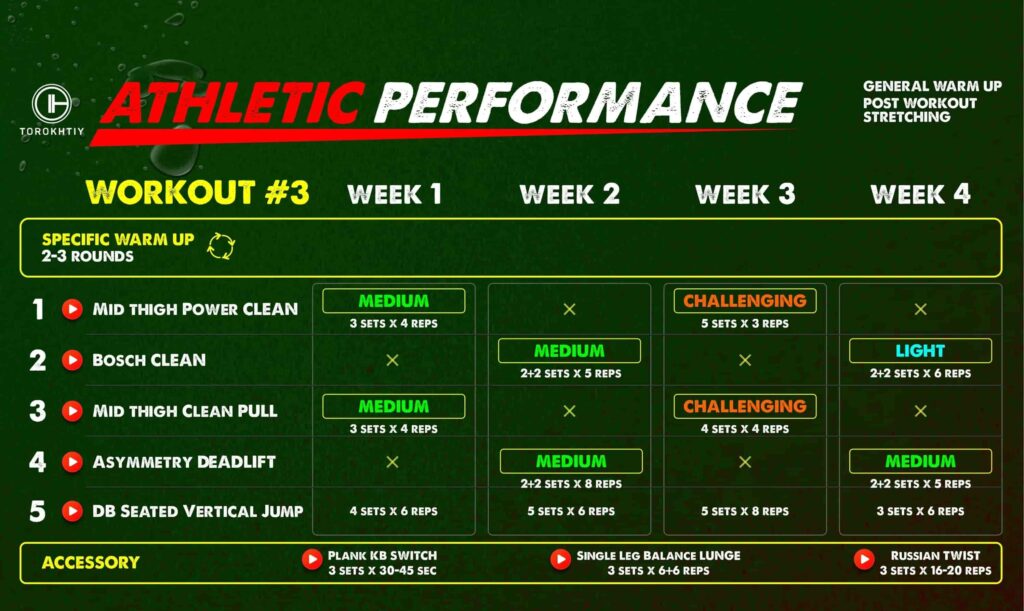
This makes a soccer weight training program imperative for you or your team. So what’s this weight training all about?
A soccer weight training program is a fitness curriculum that helps develop strength and reduce weight in soccer players. It’s especially effective in keeping players healthy and strong on the pitch.
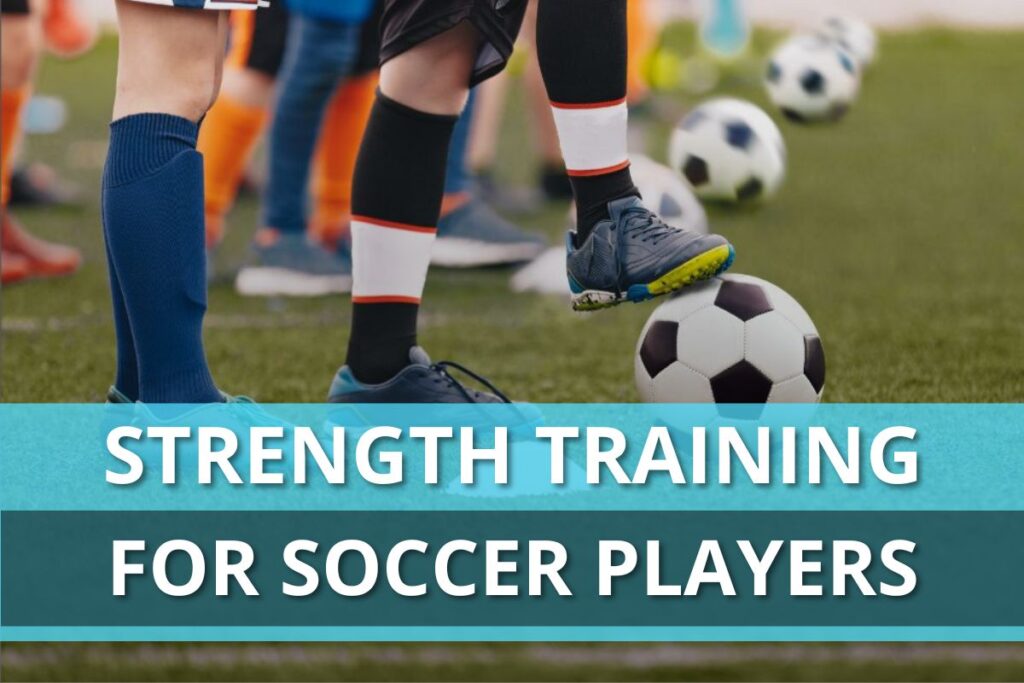
What Is Strength Training for Soccer?
Strength training for soccer involves a set of fitness regimens specifically designed to enhance the strength, agility, and power of soccer players. Strength training routines include weightlifting, powerlifting, and several other movements. What sets this apart is that it’s custom made for soccer players and tailored to meet their physical needs.
Strength training for a boxer will build up your muscles with an emphasis on punching power, but that’s not exactly useful for a soccer player. So it’s important to design a training program specifically meant for soccer players. It optimizes the efficacy of the routine.
So why should you even bother doing any soccer strength training program? What’s the big deal about it?
Benefits of Strength Training for Soccer Players
Body Control
One of the most important skills every soccer player must possess or develop is body control. Your first touch, ability to change direction or accelerate, and your mentality are all must haves in a soccer player. Strength training involves workouts that don’t just build your muscle, but also help you build balance and body control.
This makes strength training imperative for you if you’re a soccer player or for your team if you’re a coach. No wonder all teams have a fitness coach. They recognize that tactics aren’t everything, and that physical condition is just as important.
Power
In his playing days, Brazil’s Juninho was known for his shot power. Whenever he lined up a shot, goalkeepers would be cowering between the sticks. That kind of ability doesn’t come without strength training.
Strength training develops your muscles and the stronger you are, the more powerful your shots, throw-ins, goal kicks, and general game play. When you combine strength and speed, that gives you power.
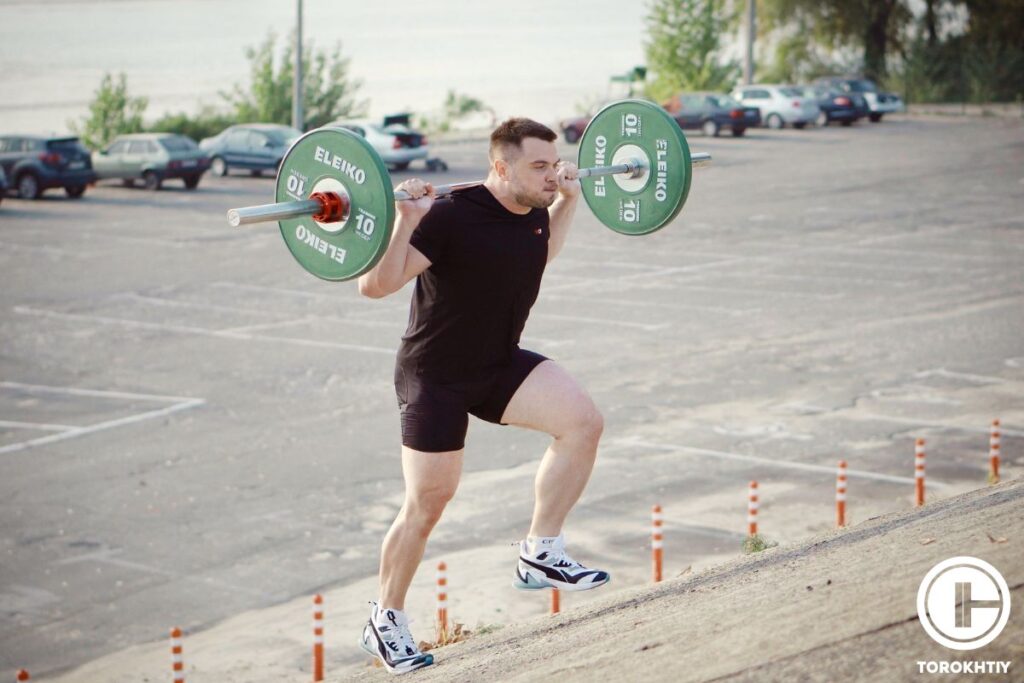
Athleticism
Have you ever seen a soccer player score with a bicycle kick? Wayne Rooney scored one in the Manchester derby and it’s still a beautiful goal to watch. That goal took an insane amount of athleticism to pull off, and not every soccer player can do it.
In building athleticism, strength training is irreplaceable. It helps you run faster, helps you develop those quick and tricky body movements to fool your opponent, and it increases your flexibility to allow you to pull Rooney-esque goals.
Follow us!
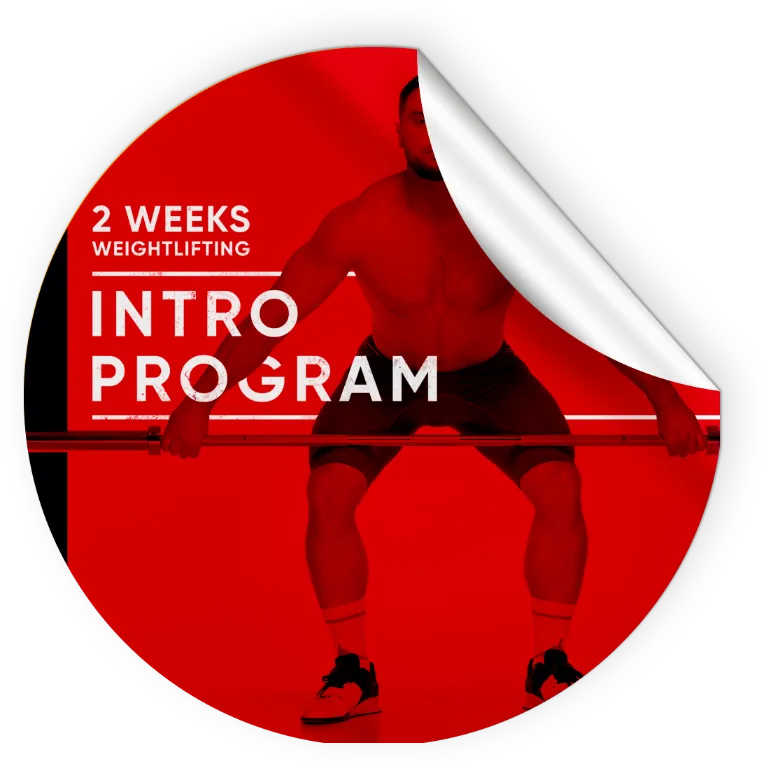
Free!
Get a 2-week Weightlifting Program as a bonus for the subscription to kickstart your training plan!

Free!
Reduced Injury Risk
The stronger and more athletic you are, the less your chances of getting injured. Soccer players get injured when they can’t take a certain amount of stress on their muscles. Two main ways of getting injured are impact hits and tired muscles. Strength training solves both of them.
Impact hits get you injured when you can’t resist the force generated in that hit. If you train regularly and build muscle strength, it’ll be much easier absorbing those hits. Tired muscles happen when you’ve overworked or overstretched your muscles so much they fall apart. Strength training helps you avoid that by loosening up your muscles and building up endurance.
Better Recovery
Often ignored, muscle recovery is a super important part of maintaining fitness for soccer players. After 90 minutes of running around, a player’s muscles must be able to rest and recover in time for the next game.
Failure to do that will result in injury from tired muscles, as we saw in the previous paragraph. Strength training helps you avoid that because a strong, fit, and well conditioned body is able to heal itself much faster than an unfit body.
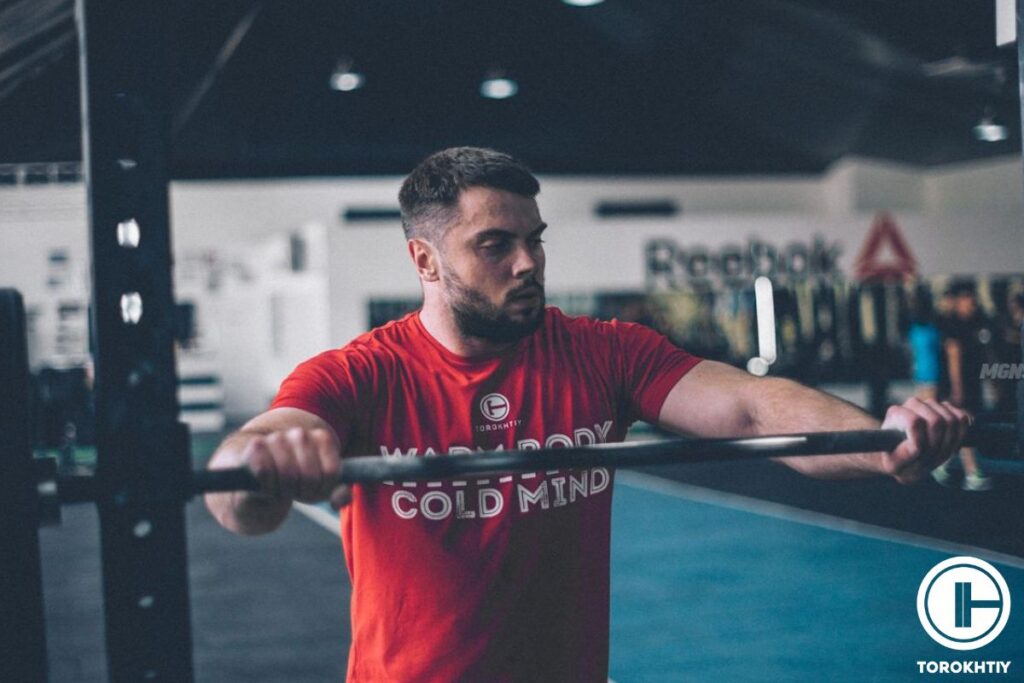
Strength Training Exercises for Soccer Players
Romanian Deadlift
Number one on my list and a must-have soccer weight lifting workout is the Romanian deadlift. It’s a super effective workout that helps develop athletes from different sports, and soccer is no different. This variation of the deadlift helps build a solid physique, and enhances your athletic ability.
By focusing on your lower body, the Romanian deadlift hits exactly where you need it to. It’ll toughen up your leg muscles and set you up nicely for leg day. You’ll need some help to master this monster of a workout, and you can find some here.
Dumbbell Bench Press
The dumbbell bench press is first cousins with the regular barbell bench press, and also quite effective for building muscle and strength. Guess it runs in the family. Unlike the barbell which forces your hands to stay locked in grip, the dumbbell allows you freedom of positioning.
You can also focus on one arm at a time. It’s easier to master and just as effective. If you need help on exactly how to execute a solid dumbbell bench press, here’s a guide for you.
Dumbbell Rows
Effective to do and even simpler to learn, dumbbell rows are another workout that have to be on your soccer strength training program. Dumbbell rows help to build up your back and improve your general posture. Muscle development, increased grip, and enhanced strength and power are all benefits of dumbbell rows. Learn how to do dumbbell rows and get stuck in the gym.
Standing Military Press
You can do a standing military press with either a barbell or a dumbbell, but it remains an amazing workout for your upper body. It’ll strengthen your back, build up muscle mass in your arms and keep you toned and ready to take all those shoulder hits on the pitch. Learn how to do the standing military press and thank me later.
Med Ball Exercises
There are several med ball exercises, but all of them develop different abilities that you will find useful on a soccer pitch. Here are different med ball exercises you can try:
- Med ball squats
- Med ball Romanian deadlift
- Med ball lunges
- Med ball crunches
- Med ball leg raises
Key Factors in Determining Soccer Players’ Strength Training Routine
Diet
This applies not just to soccer players, but also to anyone doing strength training. You have to pay attention to your diet, or you might be wasting your time.
This is why alongside a fitness coach, every team should have a nutrition expert. If you can get your diet and training routine spot on, the effectiveness of your workout will grow exponentially.
Player’s Weaknesses
Another major thing that influences a soccer player’s training routine is their specific weakness. At the beginning of his career, Messi was a talented but fragile young player who everyone worried might not play long enough because of his fitness issues. In December, 2022, Messi won the world cup at the age of 35 to cement his place as the greatest soccer player of all time. How?
He put in deliberate effort to toughen his muscles and avoid injury. He specifically targeted his weaknesses so he knew exactly which muscles to target and what workouts to do.
Coach’s Preference
Some coaches are more fitness driven than others. When Antonio Conte first took over Tottenham Hotspurs, images of their first training session showed the Spurs players nearly fainting from the brutal endurance training the Italian coach had set out for them.
To people who know Antonio Conte and are familiar with his playing style, this was not a surprise. The one thing he wants from his players is constant running.
Not every coach is like Antonio Conte, though. Some coaches prioritize technical ability more than physical training, and it will reflect in their training routines. For coaches like this, it’s up to the players to individually work towards getting stronger.
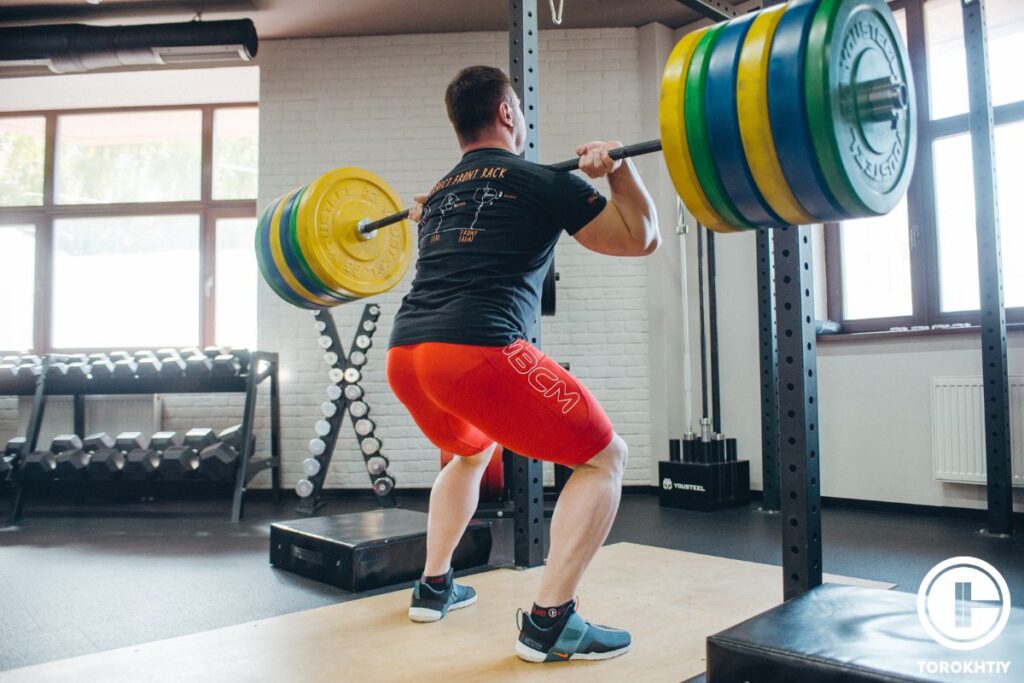
Soccer Players Strength Training Programming
It’s all good knowing why you need strength training as a soccer player, but you might not know which workouts to do or in which order. Here’s an example of a 3-day strength training program you may follow as a soccer player:
Day 1: Lower Body Strength and Power
1. Back Squats: 4 sets x 8 reps
Emphasize full depth and explosive movement
2. Deadlifts: 4 sets x 6 reps
Focus on hip drive and maintaining a neutral back
3. Med Ball Squats: 3 sets x 10 reps
Focus on balance and control
4. Barbell Walking Calf Raise: 3 sets x 10 reps per leg
Emphasize steady tempo
Day 2: Upper Body Strength and Power
1. Military Press: 4 sets x 6 reps
Maintain a strong core and stable posture
2. Dumbbell Bench Press: 3 sets x 8 reps
Emphasize a controlled descent and explosive upward movement
3. Planking Rows: 3 sets x 8 reps per arm
Focus on maintaining core stability during the row
4. Paloff Press: 3 sets x 10 reps per side
Emphasize anti-rotation
Save it for easy access!
Bookmark this page now to access the program and instructional videos anytime, anywhere.
Stop wasting time searching during your gym sessions.
Day 3: Core and Functional Training
1. Med Ball Romanian Deadlift: 3 sets x 8 reps per leg
Focus on balance and control
2. Med Ball Crunches: 3 sets x 15 reps
Emphasize full core engagement
3. Med Ball Lunges: 3 sets x 10 reps per leg
Focus on stability and controlled motion
4. Weighted Paloff Press: 3 sets x 10 reps per side
Maintain core engagement against resistance
Volume and Intensity Guidelines:
Warm-Up: Begin each session with dynamic mobility and activation exercises.
Rest Intervals: Take 2 minutes between compound lifts and 1-1.5 minutes for accessory exercises.
Load: Start at 50-60% of maximum capacity, progressively increasing the load.
Accessory Exercises: Use moderate weights with a focus on stability and control.
Mobility and Recovery Tips:
- Incorporate stretching and foam rolling for hip, shoulder, and back mobility.
- Maintain proper hydration, nutrition, and sleep for optimal recovery.
Basic equipment you need
Free Weights
When you hear strength training, you know free weights have to be part of it. Free weights are perhaps the most commonly used strength training equipment, and for good reason. There are three major types of free weights, each with specific advantages.
The barbell is made for building maximum strength and muscle mass. Weight lifting for soccer players is important and the barbell is the primary equipment for that. The dumbbell is also awesome for weight lifting, but it focuses more on selective development.
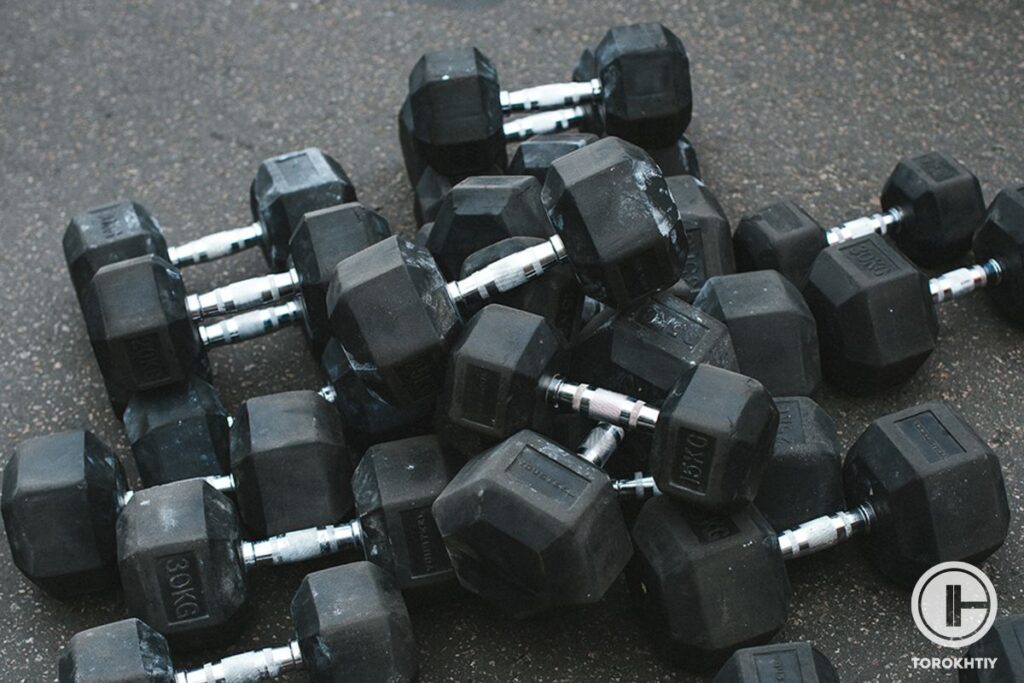
You can focus on one arm at a time and target a smaller set of muscles. The kettlebell is the third type of free weight and it primarily helps you develop explosive power in your arms.
Each of these free weights do jobs that are different but all essential to strength building. A set of each would do you much good.
Power Rack
You can’t have a soccer weight lifting program without a power rack. In every gym you enter, the power rack is a mainstay. It’s a massive piece of gym equipment that allows you to do barbell exercises. A power rack provides safety as you workout, acting as a spotter for you. It also allows you to be flexible and do different workouts that target your whole body. A power rack makes your workout safer and more effective. It’s truly a no brainer.
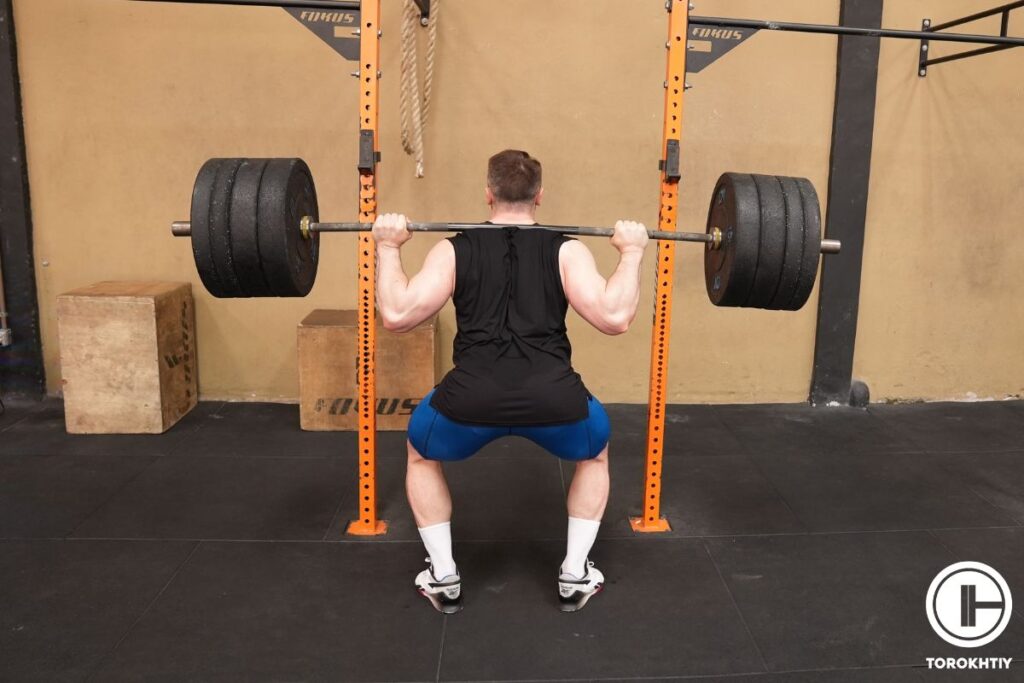
Leg Press Machine
As a soccer player, the most important part of your body is your leg. Your legs need to be strong and powerful so you can be the best on the pitch. Leg press is, therefore, one of the best workouts for soccer players. It targets your legs specifically to build muscle mass, increase endurance, and develop power.
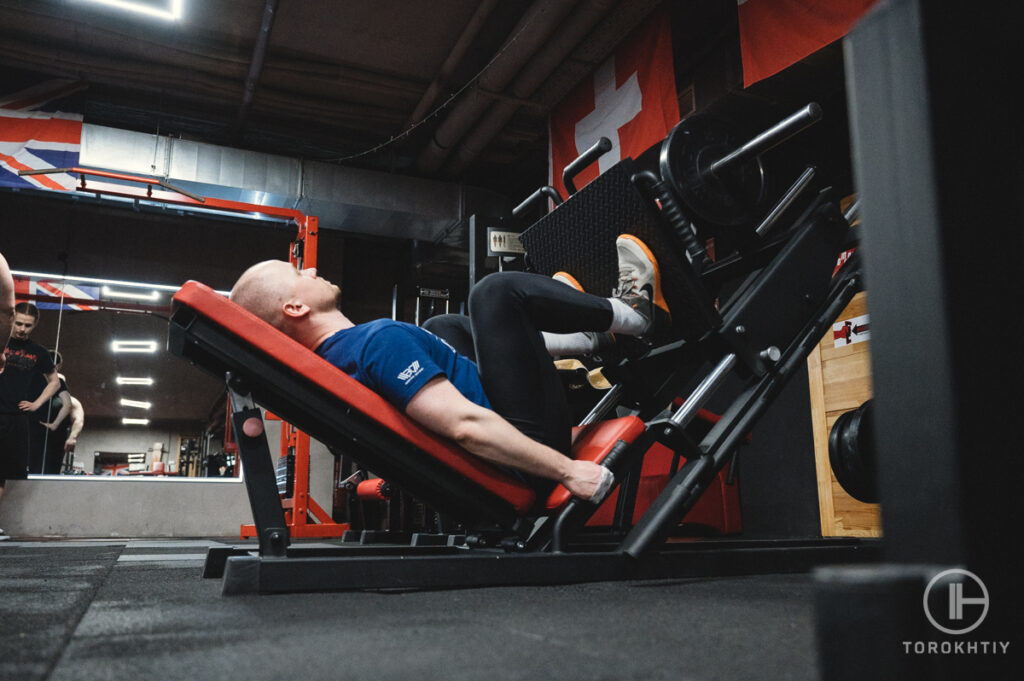
Leg press isolates your leg for training as opposed to squats which also put pressure on your core and spine. So if you’re new to weightlifting or you’ve hit a plateau in your journey, leg press might be beneficial in helping you build up some stability in your legs to help you lift better.
Leg Curl Machine
We have yet another leg workout machine in the leg curl machine. Leg curls are good for improving your balance, stamina, and overall leg strength. They target your hamstring and calf muscles as you go up, and activate your glutes and thighs on the way down. Well conditioned legs are a big boost to any soccer player because if your legs give way, there’s no playing soccer for you.
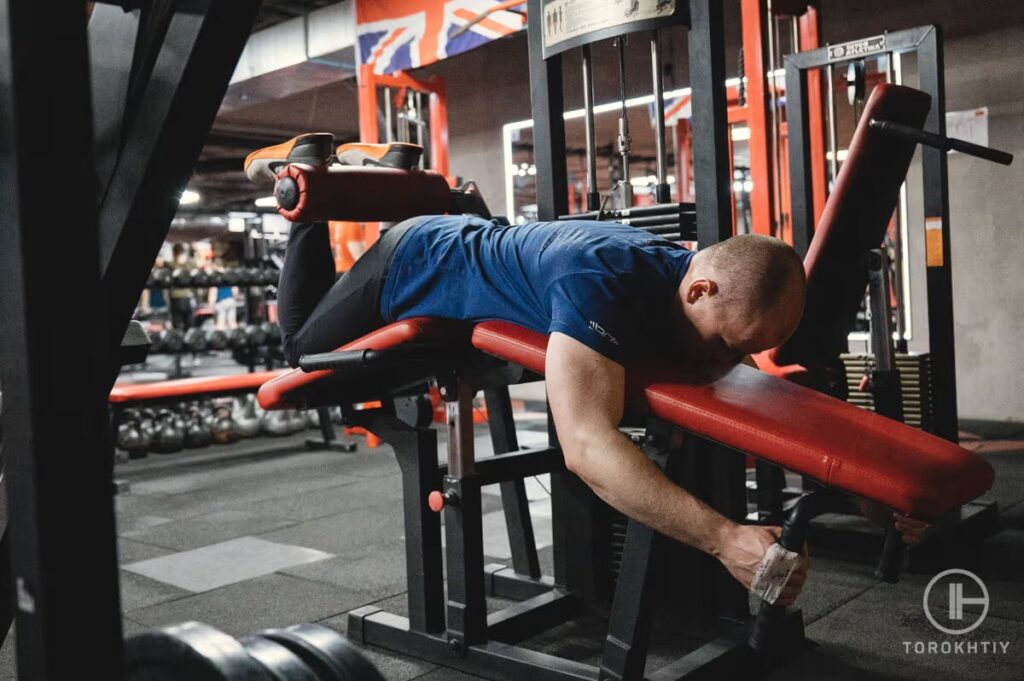
The leg curl machine is easy to master and it provides for an effective workout. It’s a soccer weight lifting workout, but unlike free weights, it targets your legs.
Others
Here are some other equipment that would be helpful to have around:
- Rowing machine
- Medicine balls
- Resistance bands
- Pressing bench
FAQ
Is Weight Training Good for Soccer Players?
Absolutely, yes! Weight training helps soccer players develop muscle strength and explosive power. It also improves balance, flexibility, and endurance.
How Many Times a Week Should Soccer Players Lift Weights?
Soccer players use the gym more during preseason. When the season starts, the aim is to maintain the fitness they’ve built up. 2-3 gym sessions per week is usually enough for that.
Should Soccer Players Do Heavy Squats?
Yes, unless your knees are particularly prone to injury and unable to take the stress. Otherwise, it helps to develop every part of your body.
Conclusion
Weight training for soccer players is quite effective at developing athleticism, power, strength, and endurance. This makes it an absolute imperative for you if you want to be good at playing soccer. Follow the program in the article with slight variances depending on your specific situation and you should be raring to go in no time.
Now let me hear from you. What are your specific weaknesses as a soccer player? Did any of the workouts pique your interest? Is there anything I forgot to mention? Let’s talk in the comments.
Also read:
- Strength Training for Football Players
- Strength Training for Sprinting
- Strength Training for Baseball Players
- Strength Training for Wrestlers
- Strength Training for Runners
- Strength Training for Cyclists
- Strength Training for Kayaking
- Medicine Ball Guide
References:
- How to Do a Military Press With Perfect Form // Men’s Health: https://www.menshealth.com/fitness/a25333223/military-press-form/
- 10 Medicine Ball Moves to Tone Every Muscle in Your Body // HealthLine: https://www.healthline.com/health/fitness-nutrition/medicine-ball-workout
- How You Should Eat for Weight Training // Very Well Fit: https://www.verywellfit.com/meal-timing-for-weight-training-3498426
- Off-Season Strength and Conditioning Soccer Workout Plan // Stack: https://www.stack.com/a/off-season-soccer-conditioning/
- Photos by Torokhtiy Media Team; matimix, Canva.com.
Why Trust Us?
With over 20 years in Olympic weightlifting, strength training, nutrition coaching, and general fitness our team does its best to provide the audience with ultimate support and meet the needs and requirements of advanced athletes and professional lifters, as well as people who strive to open new opportunities and develop their physical capabilities with us.
By trusting the recommendations of our certified experts in coaching, nutrition, and sports training programming, as well as scientific consultants, and physiotherapists, we provide you with thorough, well-considered, and scientifically proven content. All the information given in the articles concerning workout programming, separate exercises, and athletic performance, in general, is based on verified data.
The product testing process is described in more detail here.
Author: Sergii Putsov
Head of Sport Science, PhD
Best Results: Snatch – 165 kg,
C&J – 200 kg
Sergii Putsov, Ph.D., is a former professional weightlifter and National team member, achieving multiple medals in the 94 kg weight category at national competitions. With a Master’s degree in “Olympic & Professional Sport Training” and a Sport Science Ph.D. from the International Olympic Academy, Greece, Sergii now leads as the Head of Sport Science. He specializes in designing training programs, writing insightful blog articles, providing live commentary at international weightlifting events, and conducting educational seminars worldwide alongside Olympic weightlifting expert Oleksiy Torokhtiy.
Reviewed by: Oleksiy Torokhtiy
Olympic Weightlifting Champion, PhD in Sport Science
Best Results: Snatch – 200 kg,
C&J – 240 kg
Oleksiy Torokhtiy is a professional athlete boasting 20 years of experience in Olympic weightlifting. With multiple European and World titles under his belt, he has showcased his prowess in two Olympic Games (Beijing 2008 and London 2012). Upon concluding his illustrious career, Oleksiy dedicated himself to coaching. By 2022, he had conducted over 200 weightlifting seminars worldwide. He is the visionary behind an international sportswear and accessories brand known for its motto, “Warm Body Cold Mind.” Additionally, he is an esteemed author and the creator of a series of training programs and eBooks.


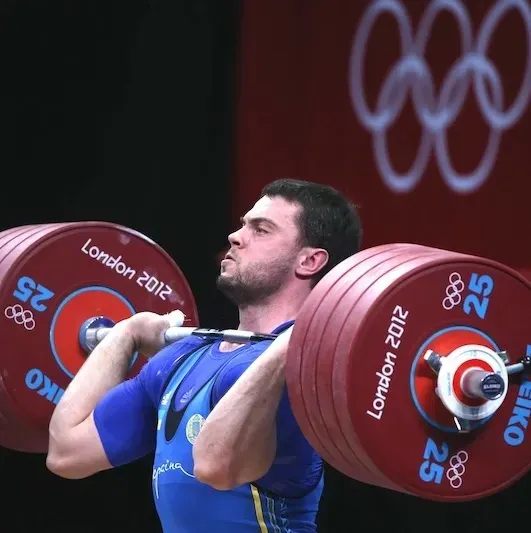

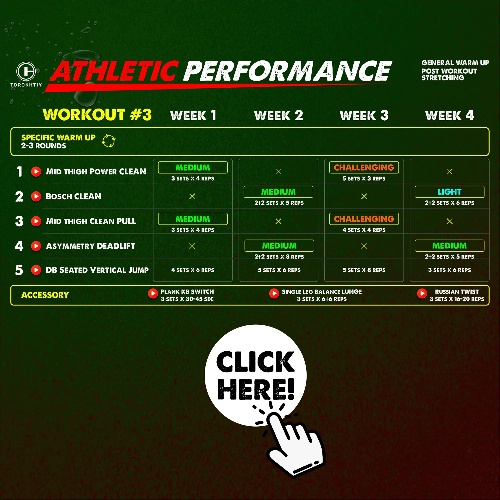

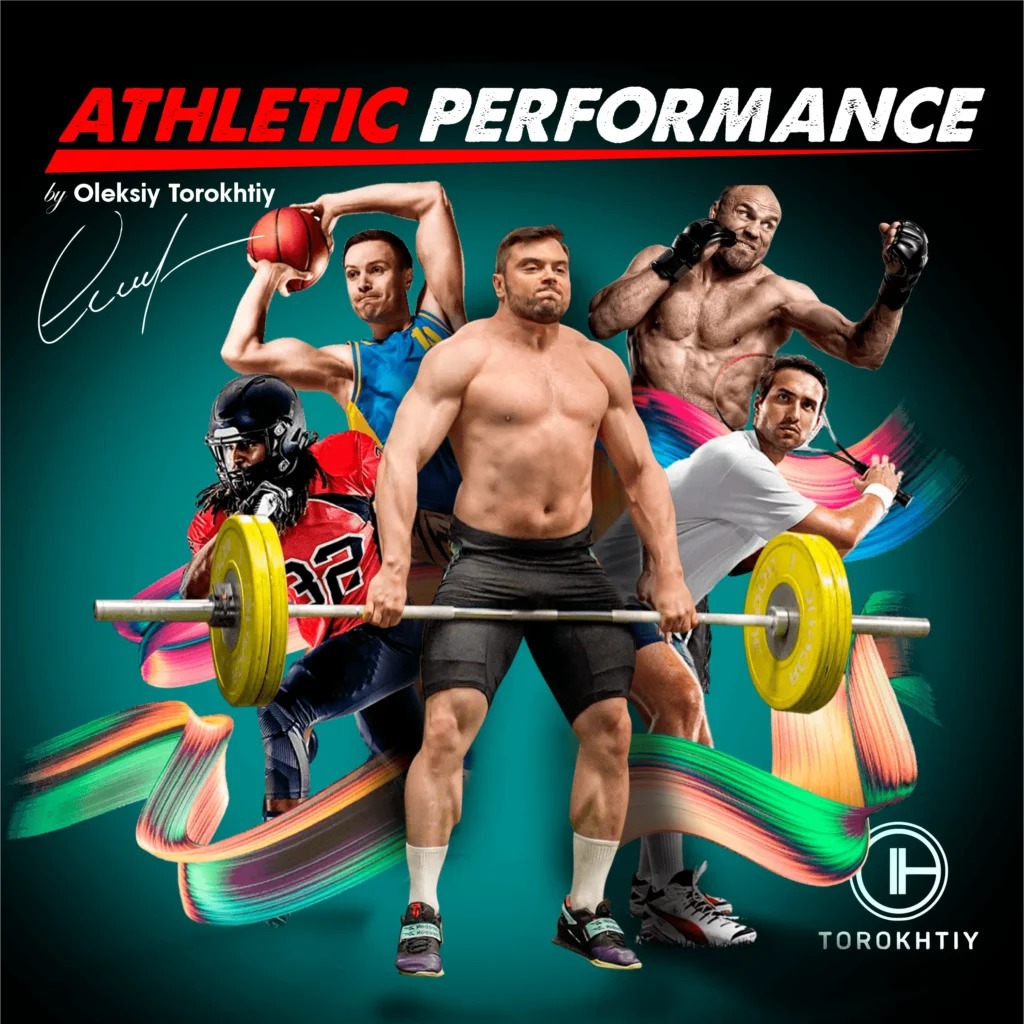
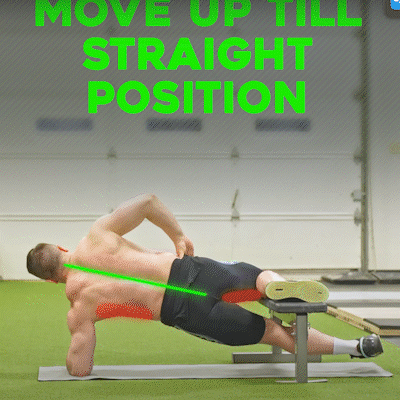
Still have questions after reading our article? Unlock your full potential by engaging with our experts and community! Don’t hesitate — leave a comment below and Sergii Putsov will provide a personalized answer and insights to help you reach your goals.